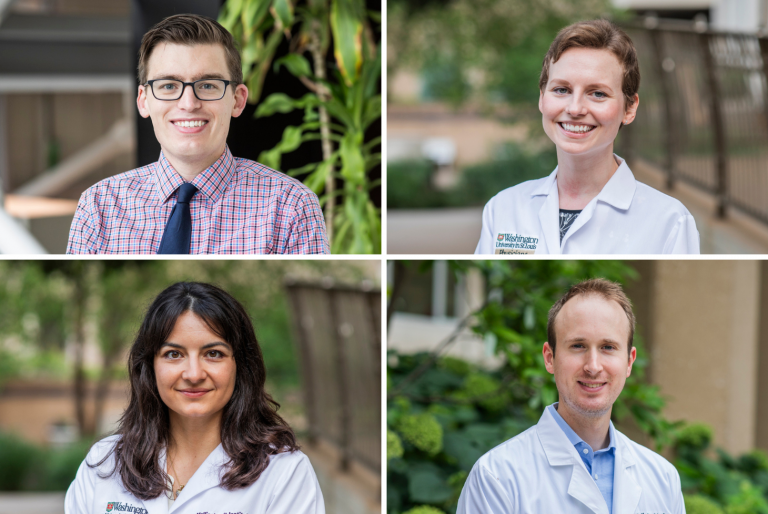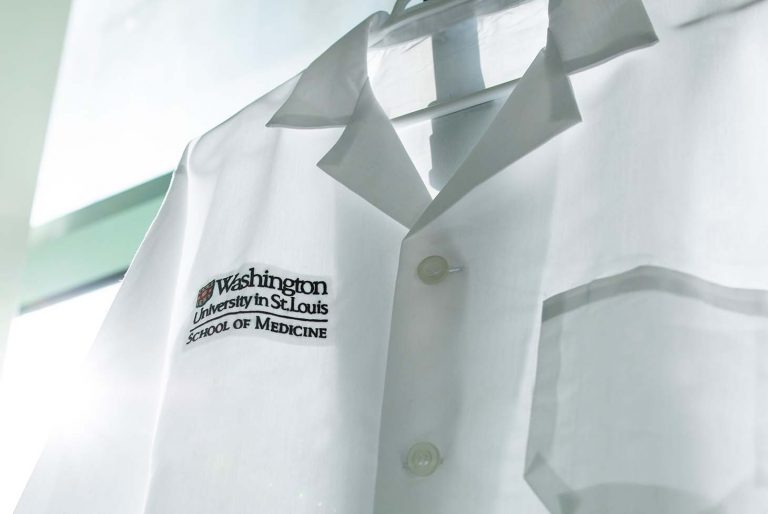Nuclear Medicine CPT Codes
Call 855-SAFE-RAD to schedule a radiology exam.
More CPT Codes: CT | MRI | PET/CT | PET/MR | Ultrasound
There are many different types on Nuclear Medicine radiopharmaceuticals (diagnostic tracers). Each radiopharmaceutical is prepared for a specific imaging exam, and in most cases specifically for each patient. Generally, a small and safe amount of radioactivity gets injected for nuclear medicine exams. These tracers are then visualized by Nuclear Medicine gamma cameras for diagnostic purposes.
If the patient is pregnant or breastfeeding, please call and discuss all options with the Nuclear Medicine physicians before scheduling the patient for exam.
If you have specific questions regarding the radiopharmaceutical used for each exam or any other radiation safety question, please call the Nuclear Medicine department.
Endocrine
CPT Code 78018
IMG 349
Prep: Interfering medications may exist, please discuss with referring physician and call Nuclear Medicine for further clarification.
Time in Department: 2 day test
- Post-operative evaluation of patients with thyroid carcinoma to determine if there are local or distant sites of tumor.
- Imaging of the extent of tumor after high-dose I-131 therapy performed for ablation of normal residual tissue or tumor.
CPT Code 78072
IMG 2137
Prep: None
Time in Department: 3 hours
- Parathyroid scintigraphy is performed to localize parathyroid adenomas or hyperplastic parathyroid glands in patients with documented hyperparathyroidism. It is particularly helpful in patients who have persistent or recurrent hyperparathyroidism after parathyroidectomy. SPECT/CT is most useful in patients with prior neck surgery or in patients where the initial planar images show a possible parathyroid adenoma in an ectopic location.
CPT Code 78013
IMG 8886
Prep: Interfering medications may exist, please discuss with referring physician and call Nuclear Medicine for further clarification.
Time in Department: 2 day test
- Measurement of the thyroidal uptake of radioactive iodine is indicated (1) to aid in the determination of the dose of I-131 sodium iodide for therapy of hyperthyroidism; (2) for confirmation of the diagnosis of subacute thyroiditis; and (3) for differentiation of hyperthyroidism due to toxic goiter from that due to painless thyroiditis or factitious hyperthyroidism.
- Thyroid scintigraphy is used in the evaluation of thyroid morphology and global and/or regional function for purposes of: (1) distinguishing toxic nodular goiter from Graves’ disease superimposed on a nodular thyroid gland; (2) diagnosing subacute thyroiditis; and (3) detecting ectopic thyroid tissue.
- I-131 treatment for hyperthyroidism is used for: (1) treatment of hyperthyroidism due to diffuse toxic goiter (Graves’ disease); (2) treatment of hyperthyroidism due to toxic nodular goiter; and (3) treatment of nontoxic goiter.
Neuro
CPT Code 78830
IMG 448
Prep: None
Time in Department: 90 minutes
- Brain perfusion SPECT is most commonly performed: (1) to aid in identification of the epiletogenic focus in patients with medically refractory epilepsy (usual partial complex seizures) in whom surgical treatment is being considered; and (2) to evaluate the adequacy of collateral cerebral blood flow in patients who are being evaluated before planned surgical sacrifice of an internal carotid artery. It is also occasionally used as an adjunctive diagnostic technique to assess cerebral blood flow patterns with suspected cerebral vasculitis, dementia, or focal neurologic disease with normal CT or MRI.
CPT Code 78830
IMG 8881
Prep: Interfering medications may exist, please discuss with referring physician and call Nuclear Medicine for further clarification.
Time in Department: 1 hour for injection, then return 3 hours later for 1 hour of imaging
- DaTScan brain imaging is used to assist in the evaluation of adult patients with suspected parkinsonian syndromes (PS).
- This scan may be used to help differentiate essential tremor from tremor due to PS.
CPT Code 78645
IMG 455
Prep: None
Time in Department: 1-2 hours
- Cerebrospinal (CSF) shunt scintigraphy is performed to determine the patency and function of a CSF shunt system.
Cardiac
CPT Code 78452
IMG 2128
Prep: The patient should be fasting for 4 hours prior to appointment and abstain from caffeine and decaffeinated beverages for 12 hours.
The patient should discuss with their physician possible medication adjustments that may need to be made.
Time in Department: 3-4 hours
- Evaluation of myocardial perfusion and viability in patients with known or suspected coronary artery disease. The most common indications include (1) diagnosing coronary artery disease in patients with clinical features indicating an intermediate probability of disease; (2) determining the pathophysiological signifi cance of known coronary artery stenosis; (3) determining the extent of myocardial ischemia and assessing prognosis after myocardial infarction; (4) assessing for risk of cardiac events prior to noncardiac surgery; (5) detecting coronary re-stenosis after angioplasty and graft occlusion after bypass surgery; and (6) evaluating the effectiveness of medical therapy.
CPT Code 78451
IMG 1183
Prep: Defer to the prep of the PET/CT portion of this exam.
The patient will be called by PET staff to provide this information.
Time in Department: 1-2 hours
- To be performed in conjunction with the PET/CT Myocardial Metabolic Evaluation study.
CPT Code 78451
IMG 1184
Prep: Defer to the prep of the PET/CT portion of this exam. The patient will be called by PET staff to provide this information.
Time in Department: 1-2 hours
- To be performed in conjunction with the PET/CT Myocardial Metabolic Evaluation study.
CPT Code 78472
IMG 431
Prep: None
Time in Department: 90 minutes
- Cardiac blood-pool imaging [radionuclide ventriculography (RVG)] is primarily useful in assessing ventricular function. Quantitative analysis provides an accurate measurement of left ventricular ejection fraction. Ventricular function is frequently assessed in: (1) patients receiving cardiotoxic chemotherapy; (2) patients with severe lung disease who are being evaluated for lung volume reduction surgery or lung transplant; and (3) patients with cardiac dysfunction due to an ischemic or nonischemic cardiomyopathy. Cardiac blood-pool imaging can also be used to assess cardiac dysfunction due to valvular disease.
CPT Code 78830
IMG 9007
Prep: None
Time in Department: 30 minutes for injection, followed by a 2.5 hour break, then 1 hour for imaging
- Detection of transthyretin-related cardiac amyloidosis (ATTR).
Tumor and Inflammation
CPT Codes 78830_78802
IMG 9011
Prep: None
The patient should discuss with their physician possible medication adjustments.
Time in Department: 30-60 minutes for injection, 2 hours for imaging (24 hours later)
- Metaiodobenzylguanidine (MIBG) is an analog of norepinephrine and is taken up selectively by the adrenal medulla, the sympathetic autonomic nervous system, and tumors derived from these tissues. Uptake occurs chiefl y via the energy-dependent type I amine uptake mechanism. Retention of MIBG within the intravesicular hormone storage compartment of cells in the adrenal medulla, and in pheochromocytomas and neuroblastomas permits their scintigraphic detection. MIBG can be labeled with either I-131 or I-123. Although it is more expensive, I-123 MIBG is the preferred radiopharmaceutical because it produces much better image quality with lower radiation exposure.
CPT Codes 78830_78804
IMG 9014
Prep: Patient should be well hydrated.
If the patient takes octreotide acetate therapy, they should discuss with their physician possible medication adjustments.
Time in Department: 30 minutes for injection, followed by a 4 hour break, then 1 hour for imaging. 2 hours for imaging on Day 2.
- Detection and staging of neuroendocrine tumors containing somatostatin receptors, especially carcinoid tumors, paragangliomas, gastrinomas, and other pancreatic islet cell
Renal
CPT Code 78707
IMG 463
Prep: The patient should be well hydrated.
Time in Department: 1 hour
- Evaluation of renal perfusion and relative renal function, especially in patients with renal failure.
CPT Code 78708
IMG 464
Prep: The patient should be well hydrated.
Time in Department: 1-2 hours
- Evaluation of patients with known or suspected urinary tract obstruction. Some patients with pelvicalyceal or ureteral dilatation may not have physiologically significant obstruction. Diuretic renal scintigraphy is based on the concept that activity in an unobstructed system will clear rapidly as a result of the high urine flow rate that occurs following administration of a diuretic. Conversely, a high flow rate will not be achieved in the presence of significant obstruction, and there will be absent or slow clearance of pelvicalyceal and/or ureteral activity.
CPT Code 78725
IMG 468
Prep: The patient should be well hydrated.
Time in Department: 5 hours
- Measurement of glomerular filtration rate (GFR) by radionuclide tracer methods is indicated when more precise information than that provided by the measurement of creatinine clearance is required or when the latter measurement is impractical (infants and small children, incontinent patients) or likely to be unreliable (because of marked impairment of renal function or because the patient is taking medications known to interfere with the tubular secretion of creatinine)
CPT Code 78830
IMG 7500
Prep: The patient should be well hydrated.
The patient should fast 4 hours prior to the study.
Time in Department: 3 hours
- Characterizing indeterminate renal masses to differentiate benign oncocytoma from renal cell carcinoma (RCC). Oncocytoma is the most common benign renal mass, accounting for 10% of all renal masses. Current imaging techniques are often unable to distinguish malignant tumors such as RCC from benign/indolent solid renal masses (e.g., oncocytoma, fat-poor angiomyolipoma, and metanephric adenomas).
Respiratory
CPT Code 78582
IMG 439
Prep: None
Time in Department: 1 hour
- Evaluation of regional pulmonary ventilation for use in conjunction with pulmonary perfusion scintigraphy in the diagnosis of pulmonary embolism.
- Evaluation of pulmonary hypertension.
CPT Code 78598
IMG 8005
Prep: None
Time in Department: 1 hour
- Evaluation and quantification of regional pulmonary ventilation and perfusion: (1) before surgery for lung cancer in patients with severe obstructive pulmonary disease; (2) before and after lung transplantation; and (3) before and after bullectomy or volume reduction surgery for obstructive pulmonary disease. This study is usually done in conjunction with quantitative pulmonary perfusion scintigraphy.
CPT Code 78597
IMG 442
Prep: None
Time in Department: 30 minutes
- Pulmonary perfusion scintigraphy is indicated for quantification of regional pulmonary perfusion (e.g., in patients undergoing preoperative assessment for pneumonectomy, lung transplantation, or volume reduction, or in patients undergoing follow-up evaluation after lung transplantation).
Musculoskeletal
CPT Code 78306
IMG 401
Prep: None
Time in Department: 3-4 hours
- Evaluation for skeletal metastases, infection, or trauma.
CPT Code 78315
IMG 402
Prep: None
Time in Department: 3-4 hours
- Three phase imaging will show trauma and infection better than whole body imaging.
- Evaluation of prosthetic loosening.
CPT Code 78830
IMG 403
Prep: None
Time in Department: 3-4 hours
- Evaluation for skeletal metastases, infection, or trauma.
- This exam specifically looks at one part of the body with high resolution.
Gastrointestinal
CPT Code 78227
IMG 8003
Prep: Patient must have nothing to eat or drink for 4 hours, but not longer than 24 hours
Time in Department: 2-3 hours
- In patients with chronic abdominal pain, hepatobiliary imaging with gallbladder ejection fraction measurement is indicated as an adjunct in the diagnosis of biliary dyskinesia or chronic cholecystitis.
CPT Code 78226
IMG 1150
Prep: Patient must have nothing to eat or drink for 4 hours, but not longer than 24 hours
Time in Department: 2-6 hours
- The most common indication for hepatobiliary imaging is to determine if a patient has acute cholecystitis. Less commonly, the study is ordered to evaluate for a bile leak. Rarely, the study is requested to determine the patency of the common bile duct in an adult patient.
CPT Code 78264
IMG 388
Prep: NPO after midnight the day before the test.
Patients who are allergic to egg substitute should not have this study.
Time in Department: 5 hours
- A gastric emptying study is primarily performed in patients suspected of having gastroparesis, a condition defined as delayed gastric emptying in the absence of mechanical obstruction. These patients frequently have nausea and vomiting. The condition may be a consequence of diabetes.
CPT Code 78265
IMG 8009
Prep: NPO after midnight the day before the test.
Patients who are allergic to egg substitute should not have this study.
Time in Department: 6-7 hours
- Indications for small-bowel transit scintigraphy include, but are not limited to, evaluation of gastrointestinal transit abnormalities as a cause of symptoms in patients with known or suspected irritable bowel syndrome, chronic idiopathic intestinal pseudo-obstruction, scleroderma, celiac disease, and malabsorption syndromes.
CPT Code 78830
IMG 1252
Prep: None
Time in Department: 2-3 hours
- Used for diagnosis of residual splenic tissue or splenosis.
Lymphatic
CPT Code 78195
IMG 2138 (Left breast)
IMG 4505 (Right breast)
IMG 9009 (Bilateral)
Prep: None, unless the patient is scheduled for same day surgery, then they should discuss NPO times with their physician.
Time in Department: 1 hour
- Lymphoscintigraphy is indicated to identify the axillary lymph node or nodes that receive the primary lymphatic drainage from a breast cancer (sentinel nodes).
CPT Code 78195
IMG 1148
Prep: None, unless the patient is scheduled for same day surgery, then they should discuss NPO times with their physician.
Time in Department: 1-2 hours
- Lymphoscintigraphy is indicated to determine the lymphatic drainage of malignant melanomas and other skin cancers (e.g., squamous cell carcinoma and Merkel cell carcinoma). The goals are to (1) determine the pathway(s) of lymphatic drainage and (2) identify the lymph node(s) that receive the primary lymphatic drainage from the tumor (the sentinel lymph nodes). SPECT/CT may be indicated to provide better anatomical localization of the sentinel lymph nodes, especially for tumors in the head and neck region.
CPT Code 78195
IMG 372
Prep: None, unless the patient is scheduled for same day surgery, then they should discuss NPO times with their physician.
Time in Department: 1-2 hours
- Lymphoscintigraphy is indicated to determine the lymphatic drainage of head & neck and vulvar carcinomas. The goals are to (1) identify the sentinel lymph nodes; and (2) determine the sites of lymphatic drainage. SPECT/CT may be indicated to provide better anatomical localization of the sentinel lymph nodes.
- Lymphoscintigraphy is indicated to determine the rate and pattern of drainage of lymph in patients with suspected congenital or acquired lymphedema.
CPT Code 78830
IMG 576
Prep: None, unless the patient is scheduled for same day surgery, then they should discuss NPO times with their physician.
Time in Department: 1-2 hours
- SPECT/CT may be performed to provide better anatomical localization of the sentinel lymph nodes. Because of timing issues related to surgery, images may not be obtained.
- For head & neck and OB lymphoscintigraphy, SPECT/CT is often indicated.
Not all exams are available at all locations.



